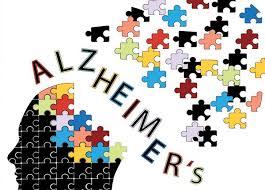 Imagine living your whole life and not remembering it
Imagine living your whole life and not remembering it
Imagine forgetting those you love the most
Imagine becoming as vulnerable as a small child
Imagine how terrifying it must be to have dementia
You can’t… but you can be Dementia Friendly
The symbol for Dementia and Alzheimer’s Awareness is the Forget-Me-Not
There are currently around 850,000 people in the UK with dementia. It generally affects people aged over 65. The likelihood of developing dementia increases significantly with age. However, dementia does affect younger people too. There are more than 40,000 people in the UK under 65 with dementia.
Dementia describes a set of symptoms that may include memory loss and difficulty with thinking, problem-solving or language. These changes are often small to start with, but over time can become severe enough to affect daily life. A person with dementia may also experience changes in mood or behaviour.
Dementia is caused when the brain is damaged by diseases, such as Alzheimer’s disease or a series of strokes. Alzheimer’s disease is the most common cause of dementia, but not the only one. The kinds of symptoms that someone with dementia experiences will depend on which parts of the brain are damaged and which disease is causing the dementia.
People in the later stages of dementia need help with every aspect of their daily lives from getting up, toileting, dressing, all aspects of personal hygiene, eating, drinking and sitting down in a chair. Everything becomes a monumental time consuming effort. But throughout it all we must try to ensure that they are treated with kindness, dignity and respect.
Symptoms
The symptoms of Alzheimer’s and dementia can overlap, but there can be some differences. Both conditions can cause:
- a decline in the ability to think
- memory impairment
- communication impairment
The symptoms of Alzheimer’s include:
- difficulty remembering recent events or conversations

- apathy
- depression
- impaired judgment
- disorientation
- confusion
- behavioral changes
- difficulty speaking, swallowing, or walking in advanced stages of the disease
Some types of dementia will share some of these symptoms.
People with dementia due to Parkinson’s or Huntington’s disease are more likely to experience involuntary movement in the early stages of the disease.
Treatment of Dementia
Most causes of dementia cannot be cured, although research continues into the development of drugs, vaccines and other medical treatments. Much can be done to help people with dementia to live well with this condition. Care and support is best when is is ‘person-centred’ which means being focused on the person and their individual needs and preferences.
One of the easiest ways to rob someone with dementia of their dignity is to be dismissive talk through, over or about them as though they are not there. Include, involve and respond as though you understand – even if you don’t
There is lots of work going on in the area of Dementia Research. If you would like to know more click on the link: Join Dementia Research


